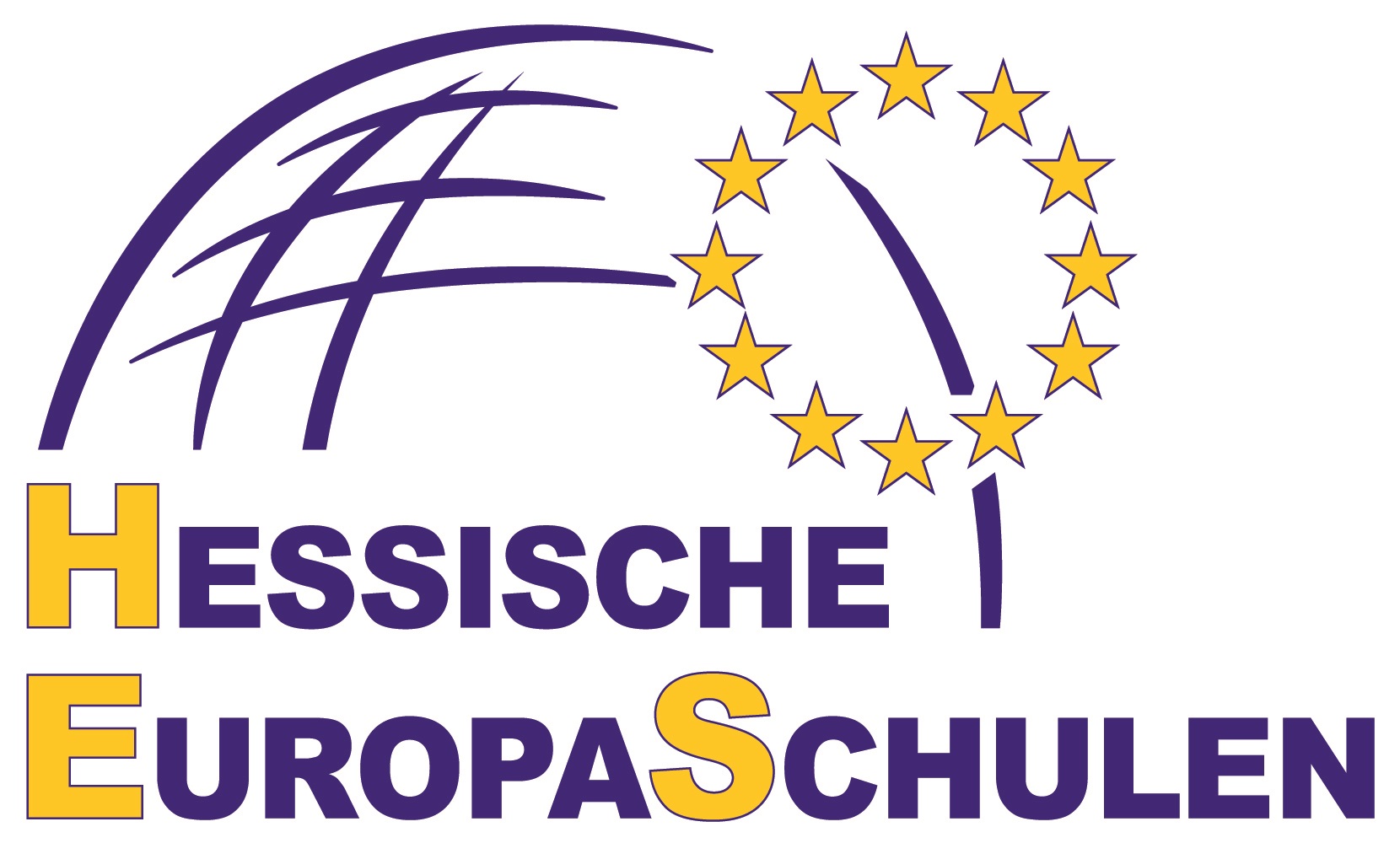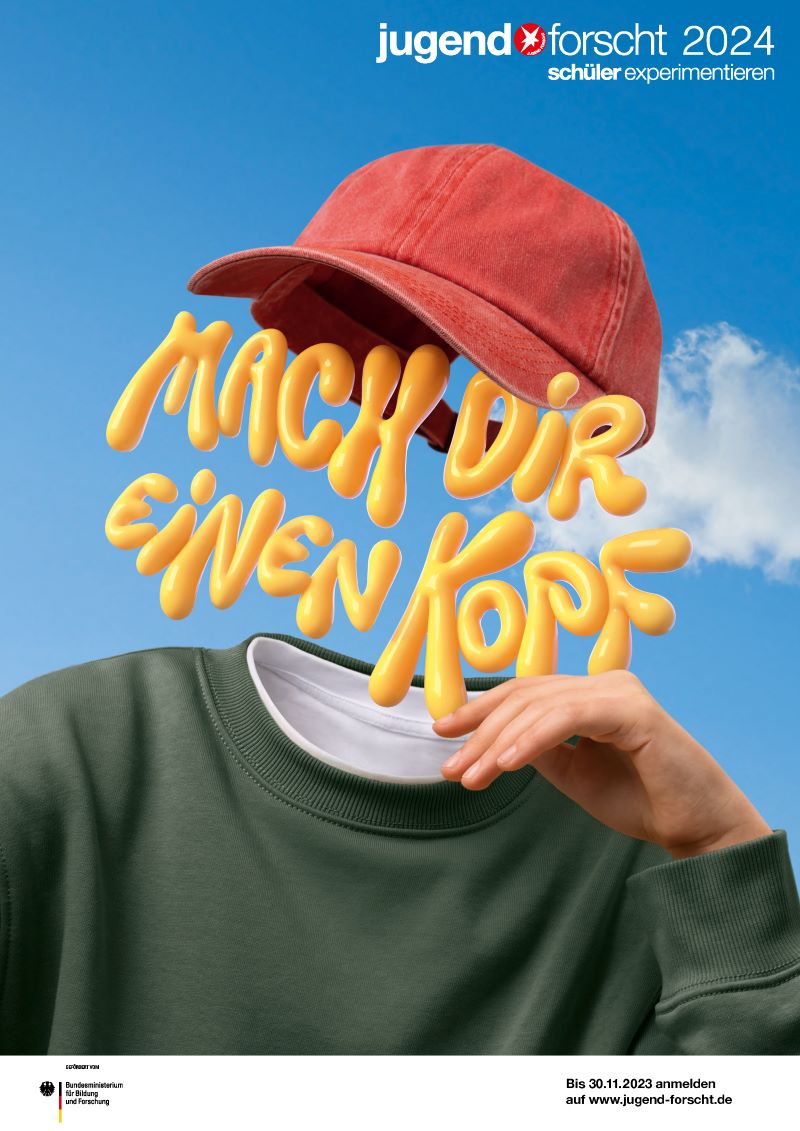 Four of the eight research projects submitted by the Jugend forscht MakerLab of the Schuldorf won their respective regional competitions at the beginning of February. They therefore competed in March in the respective state competitions "Schüler experimentieren" (UNI Kassel) for pupils under 15 years of age and "Jugend forscht" (Merck Darmstadt) for the age group 15 years and older.
Four of the eight research projects submitted by the Jugend forscht MakerLab of the Schuldorf won their respective regional competitions at the beginning of February. They therefore competed in March in the respective state competitions "Schüler experimentieren" (UNI Kassel) for pupils under 15 years of age and "Jugend forscht" (Merck Darmstadt) for the age group 15 years and older.
At the state competition in Kassel, it became clear that the trend of recent years towards research projects that are actually declared as school projects being carried out entirely at universities is continuing to grow. Their state-of-the-art technical equipment naturally enables these project groups to produce results at a completely different level and makes it no longer fair to compare them with pure school projects. In addition, the jury had not agreed upfront on how to handle biological material brought along by the researchers. The Chemistry and Working World jury allowed their groups to do so, while the Biology jury forbade it, which also affected our students. Nevertheless, the MakerLab was successful.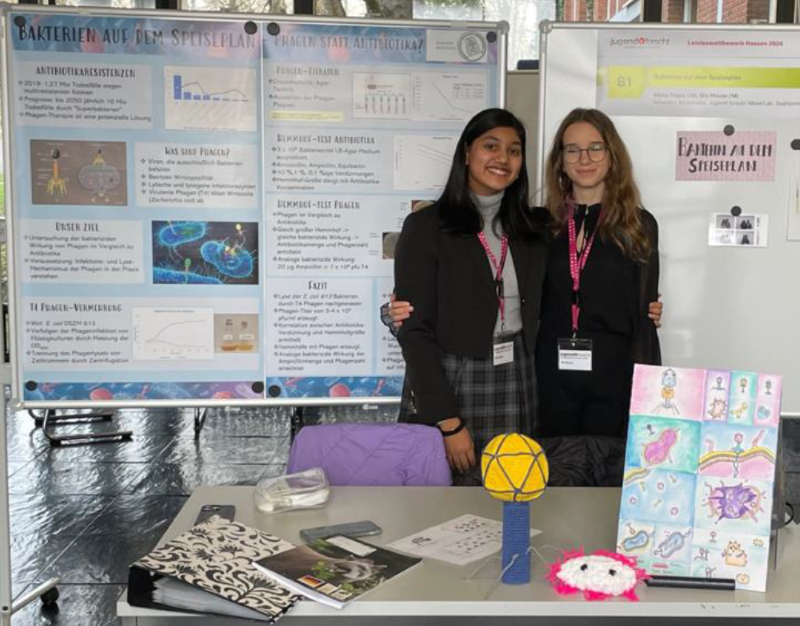 "Bacteria on the menu - phages instead of antibiotics?" is the name of the project by Misha Hedge (9th grade international branch) and Mia Maurer (8th grade German grammar school branch), who won 3rd place in the Biology category in Kassel. In their Escherichia coli bacteria model, they were able to show which number of phages has the same bactericidal effect as a certain amount of antibiotics. Phages are bacteria-specific viruses that are already prescribed in some Eastern European countries for the treatment of resistant germs. Misha and Mia have also completely familiarized themselves with the relevant microbiological and molecular biological principles in order to withstand the jury's questions. They are very thankful to Dr. Rene´ Kallies and Dr. Nawras Ghanem from the Helmholtz Centre for Environmental Research, Leipzig, for providing the bacterial and phage strains.
"Bacteria on the menu - phages instead of antibiotics?" is the name of the project by Misha Hedge (9th grade international branch) and Mia Maurer (8th grade German grammar school branch), who won 3rd place in the Biology category in Kassel. In their Escherichia coli bacteria model, they were able to show which number of phages has the same bactericidal effect as a certain amount of antibiotics. Phages are bacteria-specific viruses that are already prescribed in some Eastern European countries for the treatment of resistant germs. Misha and Mia have also completely familiarized themselves with the relevant microbiological and molecular biological principles in order to withstand the jury's questions. They are very thankful to Dr. Rene´ Kallies and Dr. Nawras Ghanem from the Helmholtz Centre for Environmental Research, Leipzig, for providing the bacterial and phage strains.
 For their Chemistry project "Electrifying hair .... or is melanin electrically conductive?", Antonia Grüdl and Franziska Küch (both left in the photo) from Year 7 of the German grammar school received in Kassel the special prize "Climate protection and energy" from the Association of German Engineers. With no previous knowledge of chemistry, the two students, with the support of their project supervisors, had worked intensively on topics such as the color of pigments, the biosynthesis of melanin and electrochemistry. The color pigment melanin, which is found in vertebrates, fungi, plants and bacteria, is the most stable substance known, which makes it even more interesting for the production of chemical energy from light photons. Both students have applied for patents for their research results.
For their Chemistry project "Electrifying hair .... or is melanin electrically conductive?", Antonia Grüdl and Franziska Küch (both left in the photo) from Year 7 of the German grammar school received in Kassel the special prize "Climate protection and energy" from the Association of German Engineers. With no previous knowledge of chemistry, the two students, with the support of their project supervisors, had worked intensively on topics such as the color of pigments, the biosynthesis of melanin and electrochemistry. The color pigment melanin, which is found in vertebrates, fungi, plants and bacteria, is the most stable substance known, which makes it even more interesting for the production of chemical energy from light photons. Both students have applied for patents for their research results.
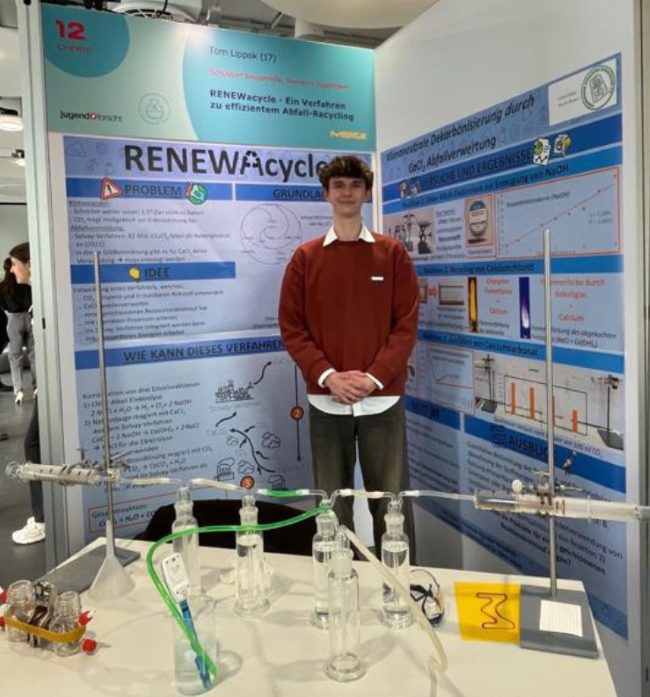 With his project "RENEWacycle - climate-neutral decarbonization through CaCl2 waste recycling", Tom Lippok is trying to solve the question of what happens to the millions of tons of waste from soda (baking soda) production. His aim is to develop a closed resource cycle that can be implemented on an industrial scale in the future. Tom won 2nd place in the state competition at Merck in the Chemistry category. He has also applied for a patent for his technical process and is looking for industrial cooperation partners. Tom is in Year 11 of the German grammar school branch.
With his project "RENEWacycle - climate-neutral decarbonization through CaCl2 waste recycling", Tom Lippok is trying to solve the question of what happens to the millions of tons of waste from soda (baking soda) production. His aim is to develop a closed resource cycle that can be implemented on an industrial scale in the future. Tom won 2nd place in the state competition at Merck in the Chemistry category. He has also applied for a patent for his technical process and is looking for industrial cooperation partners. Tom is in Year 11 of the German grammar school branch.
 Charlotte Popp and Clara Tonarelli were inspired for their project "Mouth and nose protection masks - protection for us, harm for nature?" by the fact that during the coronavirus pandemic, disposable medical masks were carelessly discarded in nature instead of ending up in the residual waste. They are in the 10th grade of the German grammat school branch and were competing for the second time in the state competition at Merck in the Biology category. Based on their test series from last year, the two have developed a mask material and finished masks that they want to test for biodegradability and protection against germs. Their degradation process is to be examined in direct comparison with masks that are already available, for which the two have developed a closed composting system with automated product analysis. The two won 2nd place with their project. They also received the special prize "Participation in the JugendUnternimmt summer school - Innovative business idea with entrepreneurial courage". The prize was sponsored by the International Martin Luther Foundation and the Thuringia Foundation for Technology, Innovation and Research.
Charlotte Popp and Clara Tonarelli were inspired for their project "Mouth and nose protection masks - protection for us, harm for nature?" by the fact that during the coronavirus pandemic, disposable medical masks were carelessly discarded in nature instead of ending up in the residual waste. They are in the 10th grade of the German grammat school branch and were competing for the second time in the state competition at Merck in the Biology category. Based on their test series from last year, the two have developed a mask material and finished masks that they want to test for biodegradability and protection against germs. Their degradation process is to be examined in direct comparison with masks that are already available, for which the two have developed a closed composting system with automated product analysis. The two won 2nd place with their project. They also received the special prize "Participation in the JugendUnternimmt summer school - Innovative business idea with entrepreneurial courage". The prize was sponsored by the International Martin Luther Foundation and the Thuringia Foundation for Technology, Innovation and Research.
We are proud of you!
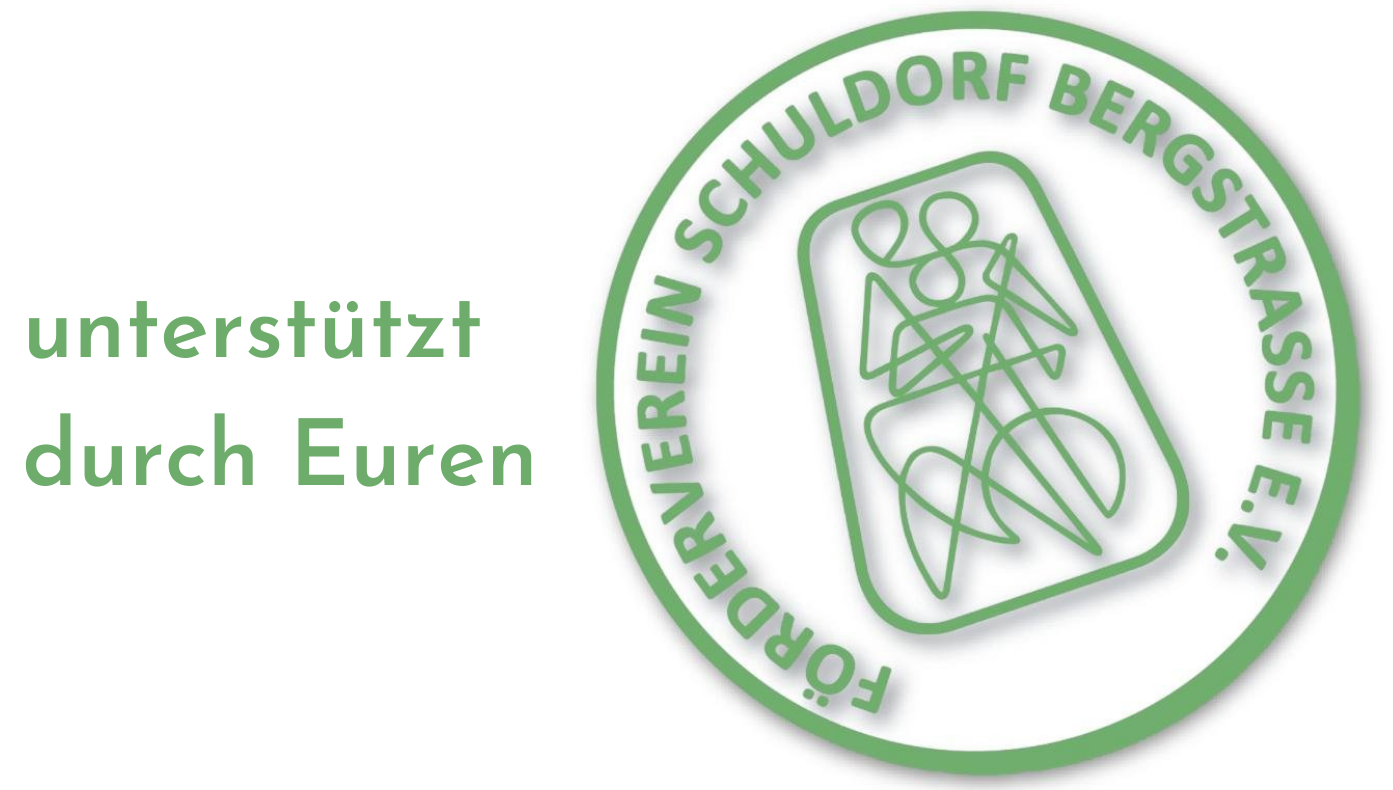 Our special thanks also go to the Förderverein des Schuldorfs for sponsoring the posters for both the regional and state competitions.
Our special thanks also go to the Förderverein des Schuldorfs for sponsoring the posters for both the regional and state competitions.
Your supervisor team
Dr. Sara Bosio, Laín Mencía Martínez, Stefan Netzer, Dr. Dietmar Scherr,
Dr. Claudia Syren and Dr. Petra Leidert
